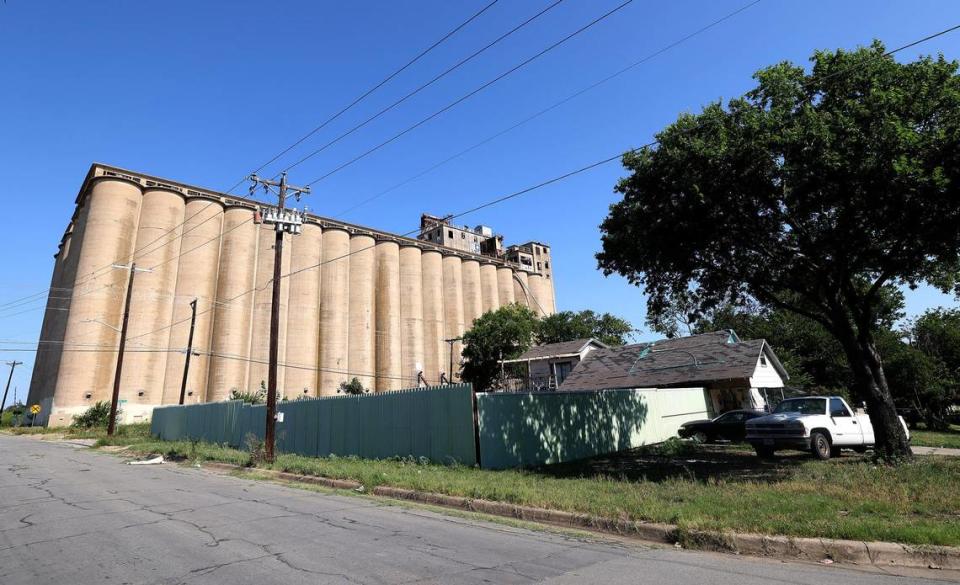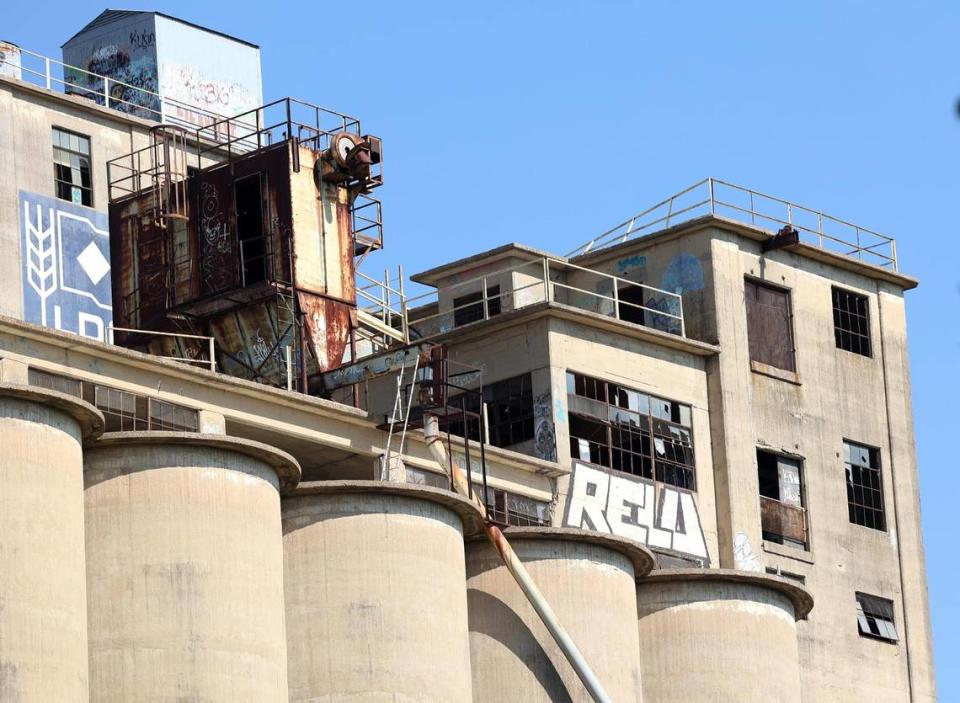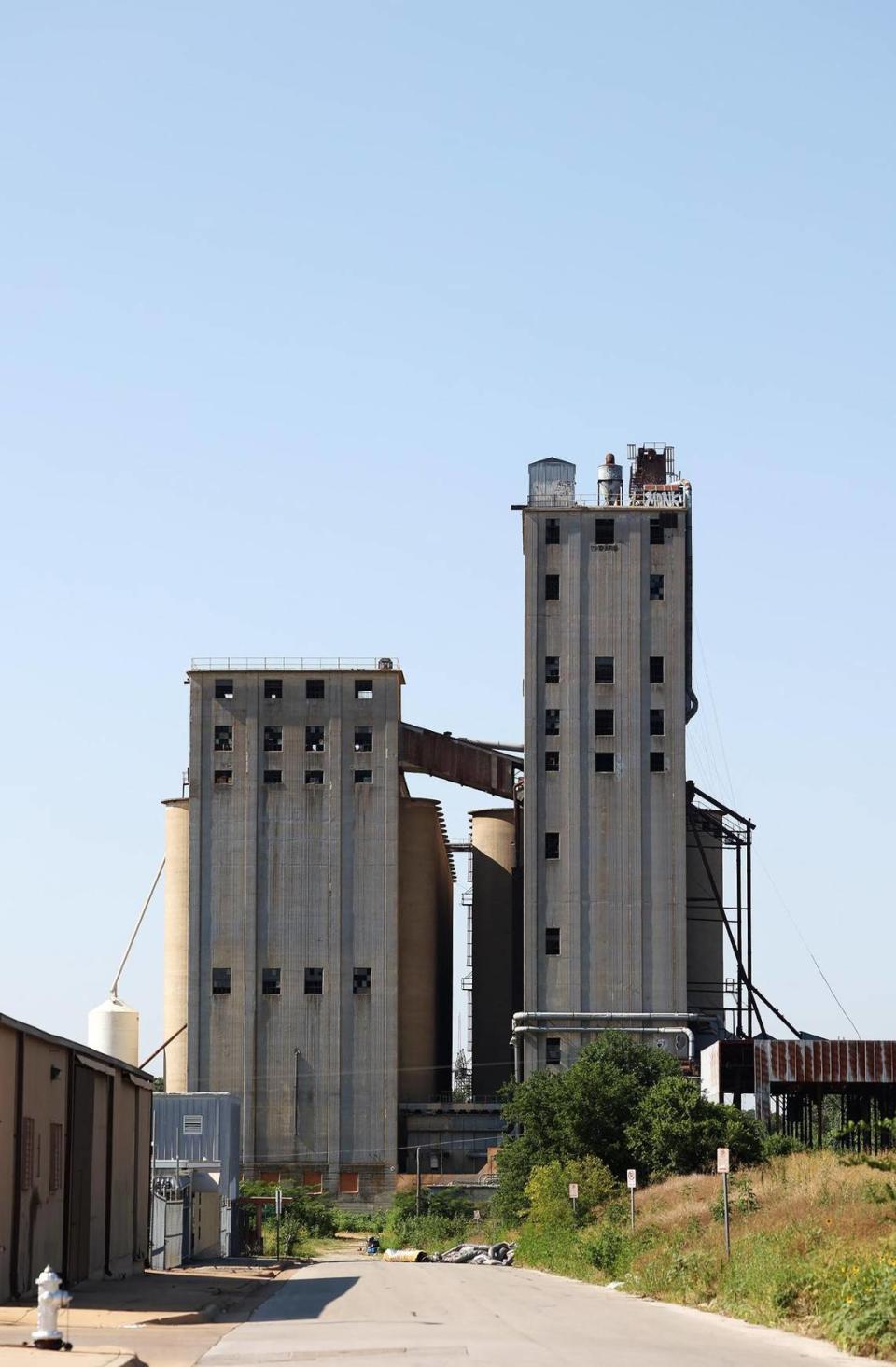100-year-old eyesore looms over Fort Worth neighborhood. Residents have had enough
The silos in Fort Worth’s Worth Heights have been there for just as long as anyone in the neighborhood can remember.
The structure at 3700 Alice St. is flanked on one side by grass and weeds and trees that have grown tall and thick like a forest. The concrete silos are cracked from time’s passage. Look close and you’ll see pieces of clothing, trash and shopping carts on the property.
Neighbors don’t know much about the structure, but they make one thing clear: The silos are an “eyesore,” and they don’t want them there anymore.
City officials and residents have gone back and forth about the vacant property for years.
Neighbors think it’s the city’s job to do something. The city pushes the responsibility to the property owner. Tax records show the property is owned by 3500 Alice Trust. Its trustee, James Gislason, can’t be found, city officials said.
The Star-Telegram could reach Gisalon for comment. Phone numbers numbers listed with Gislason’s property records do not belong to him.
City officials took a vote in 2016 that would have allowed them to step in to demolish the silos if the owner didn’t make fixes or demolish it himself.
Besides the general look of the silos, neighbors say they bring trouble. People come to do drugs or drop off cars, and sometimes those experiencing homelessness camp there.
They’re also dangerous. In September 2016, a 17-year-old girl from Haltom City fell to her death after climbing up on top of the silos.
The lack of action leaves neighborhood residents stuck.
“I’m all for history, but some stuff is not worth preserving,” said longtime resident Richard Gonzalez. “That is not worth preserving. That needs to come down.”

History behind the silos
The silos and grain elevator date to 1924, when Fort Worth was the grain capital of the Southwest, according to an archivist at the Fort Worth Library.
They were owned by the Fort Worth Elevator Co. The structure does not have a historic designation.
The silo’s history comes mostly from the memories residents carry.
Longtime residents Joe Guerrero, the neighborhood association president, and Vicki Bargas, the association’s vice president, remember children playing on them when they were young.
Neither of them partook in the fun, though — Guerrero said his parents were too strict.

They think the silos may have shut down sometime in the 1980s.
Gonzalez, who has lived in the neighborhood for 50 years, said the area used to be country, and when it was, the silos served a purpose.
“But the city grew, and it’s now no longer functioning,” said Gonzalez, who regularly writes history columns for the Star-Telegram. “It needs to be removed. It’s just an eyesore.”
An inquiry by the Star-Telegram in a Fort Worth history page on Facebook yielded nearly 50 comments.
People remember the smell, likely yeasty grain that to some smelled more like fried chicken, fried pork chops or popcorn.
Anna Ceballos remembers everyone called them the molinos, or the mills in Spanish.
Laura Ramon said she used to slide down the nearby hill and flatten pennies on the train tracks that run parallel to the property.
Others on Facebook relayed stories of the trucks coming down Alice Street and West Biddison Street and onto the interstate to unload their grain.
Trouble on the property
In 2016, the property came before the city’s building standards commission, which unanimously deemed the silos “substandard and hazardous.” One member of the commission was absent.
It also unanimously voted to give the owner 30 days to fix or demolish the building or face demolition from the city.
During that meeting, a code compliance officer flashed pictures of graffiti at the base of the silos, which were surrounded by trash and were littered with urine and human waste.

Chirs McAllister, the assistant code compliance director, told the commission at the time that his office had found 78 openings in the structure, including on the floor.
McAllister also said his office had tried to reach the property owner to the point where workers were being hung up on and told the number was wrong.
At that 2016 meeting, a longtime resident told the commission that since the silos’ closure, it had become a “dumping ground.”
“No one is there to take care of that silo, or watch or make sure that nothing unsafe happens on the property,” he told the commission at the time. “I don’t understand why, but I guess that’s the way it’s done.”
The resident said the property had been in bad condition for a number of years and he continuously brought it to the attention of city officials. He had seen kids go in there and he had also run them out of the property. He also said that when he called the police to address issues on the property, they often didn’t want to go in.
“That building needs, if it was ever possible, to come down,” he said. “Because I don’t know what you can do to lock it up.”
The city has placed 94 liens on the property since 2009, according to deed records. The first one, issued in October 2009, was for high grass and weeds. The most recent, issued in March, was for failure to make utility payments.
Lack of city response?
Representatives for the city’s development services and code compliance offices said it is up to the owner to do something about the silos.
“The City does not own the property that the silos are on, so any future plans would be at the discretion of the property owner,” a representative with the code compliance office wrote.
Cody Whittenburg, the city’s assistant code compliance director, said the city is limited in what it can do because it can’t reach the property owner. He also said the funding to demolish the structure is a barrier.
The estimated cost? $1.2 million.
But if the city were able to secure the funds needed for demolition and officials continue to be unsuccessful in their search for the property owner, Whittenburg said the code compliance office would like to bring the issue back to the building standards commission for another vote.
“This project is certainly among a list of, as you can imagine, thousands of projects the city must consider as it’s developing its next fiscal year budget,” Whittenburg said. “So it’s very possible that this project will find funding this year or in future years.”
Whittenburg said code compliance has continued to monitor the property and has worked closely with the police department and fire department to address issues. The city even brought in its contractors to remove lower ladders and cover up access points, though Whittenburg said people still try to break them down.
What should happen to the silos?
Most come back to one solution for the silos: Tear them down.
Bargas said she would love to see the silos converted into something else, like apartments. Gonzalez is also an advocate for new development, like stores or apartments.
“That’s a monstrosity,” he said. “It’s ugly. I don’t know how you can pretty it up. You can’t. It needs to be demolished.”
Gonzalez thinks there needs to be an environmental study due to concerns about toxic elements on the property.
Jeanette Martinez, the area’s new representative on Fort Worth City Council, said she has met with the neighborhood association about the silos and that she was looking into solutions.
She would like to see the silos removed and the land developed, but she knows the cost to demolish the buildings will be expensive.
Despite that, Martinez hopes to be the one to get the ball rolling.
And until that ball gets rolling, the silos will still stand.
The same as they ever were.

